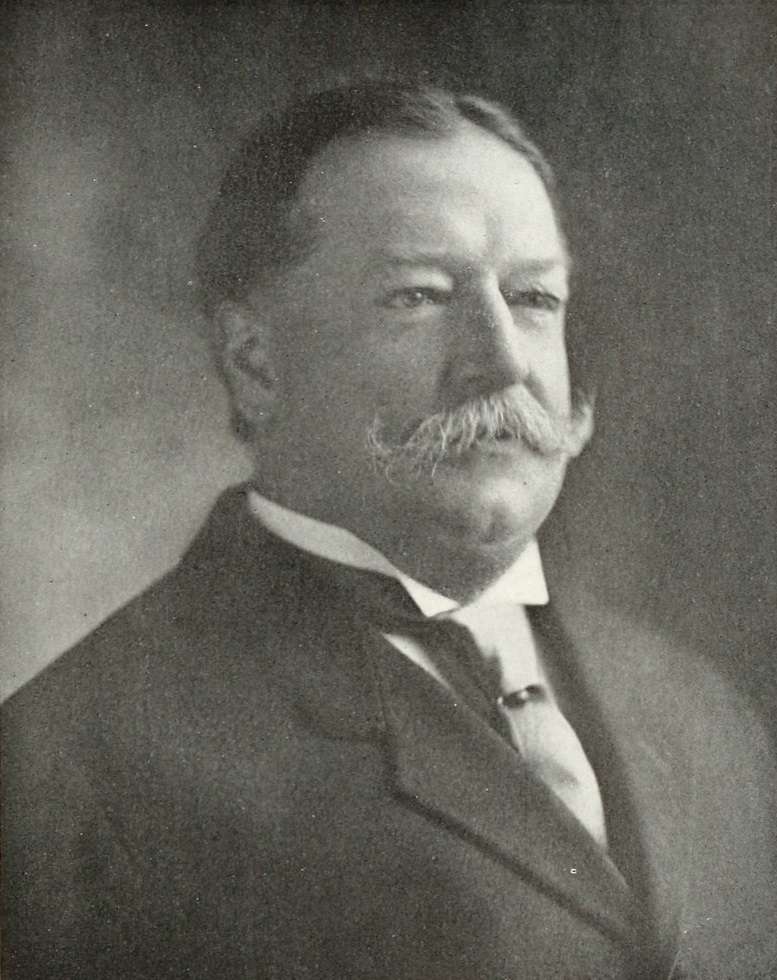REVIEW POTPOURRI: Grover Cleveland
 by Peter Cates
by Peter Cates
Grover Cleveland
The 22nd/24th former President Stephen Grover Cleveland achieved distinction in three ways during his years in the White House:
1. He was the only Democrat to be elected president since James Buchanan’s one term ended in 1861 and would remain so until 1913 when the Democrat Thomas Woodrow Wilson would defeat both Republican William Howard Taft in his bid for re-election and Taft’s predecessor, Teddy Roosevelt, who had bolted the Republican party and ran as an independent Bull Moose candidate.
2. Cleveland remains the only president to serve two split terms, first from 1885 to 1889 only to be defeated by the Republican Benjamin Harrison ; and then to defeat Harrison in the latter’s re-election bid and again serve from 1893 to 1897.
3. He was stubbornly, abrasively, incorrigibly honest, not giving a hoot about his own political interests, let alone pleasing others; he earned the honorary epithets “Ugly-honest” and “His Obstinacy!”
Cleveland was born in Caldwell, New Jersey, March 18th, 1837, to a Presbyterian minister, Richard Falley Cleveland (1804-1853), and his wife, the former Ann Neal (1806-1882), and had three brothers and five sisters.
When Rev. Cleveland was appointed district secretary for the American Home Mission Society, he relocated the family to New York State, which Cleveland himself would consider his home base for most of his working adult life.
He taught at a New York City school for the blind, moved to Buffalo where he studied law and was admitted to the bar in 1859, became a ward supervisor, assistant district attorney and sheriff of Erie County, mayor of Buffalo and finally governor of New York before winning the presidency.
As sheriff, Cleveland personally pulled the lever at the hangings of two convicted killers.
During the horrible 1880s of corruption in the country when the rich kept getting richer and buying up just about every official in government, one historian remarked that “the Standard Oil Company has done everything with the Pennsylvania legislature except refine it.”
Despite the rampant political criminality versus Cleveland’s refusal to wheel and deal in his frequently cursed honesty and independence, honest people in high places sought him out and his rise in public life began its ascendancy. As mayor, governor and president, he cut much fraud and waste with his own reforms and reduced tariffs.
But he did at times make mistakes, perhaps the greatest one being his appointment of a hard-nosed Attorney General Richard Olney , who in turn used harsh measures in cracking down on unemployed workers and strikers against the Pullman Railroad and Standard Oil.
In 1886, the 49-year-old bachelor married 21-year-old Frances Folsom, the daughter of one of his Buffalo law partners who had died 11 years earlier and of whom Cleveland had been a guardian for both her and her widowed mother. Married life softened Cleveland’s personality considerably. The couple had three daughters and two sons.
Cleveland had two vice-presidents – Indiana Senator Thomas A. Hendricks (1819-1885) who died shortly after taking office; and, during the second term, Illinois Representative Adlai Stevenson (1834-1914) who was the grandfather of the more famous opponent of Dwight D. Eisenhower twice for the White House and later appointed by John F. Kennedy as Ambassador to the United Nations.
An addendum:
Cleveland’s Republican opponent in 1884 was Maine’s own James G. Blaine who, as Speaker of the House, had engaged in suspicious sales of some railroad stocks and bonds.
The campaign became one of vicious mud-slinging with Democrats singing “Blaine, Blaine, James G. Blaine/The continental liar from the State of Maine!”
Then Republican operatives found a woman, Mrs. Maria Halpin, who stated that Cleveland had fathered her illegitimate son.
He accepted responsibility and, when his advisors inquired as to how they should respond, simply replied, “Tell the truth.”
Now the Republicans jeered, “Ma! Ma! Where’s my Pa?/Gone to the White House. Ha! Ha! Ha!”
After leaving the White House in 1897, Cleveland moved to Princeton, New Jersey, where he served on the University board of trustees and wrote the occasional article for Saturday Evening Post.
Grover Cleveland’s health declined during his last two or three years and he died of a heart attack on June 24, 1908, at the age of 71.
His widow outlived him by 39 years and died at the age of 83 in 1947. Except for the couple’s oldest child Ruth, who died at 13 in 1904, the remaining four children outlived both parents.
A personal note: the Nobleboro, Maine, author Elizabeth Coatsworth and her husband Henry Beston visited my grandmother annually for dinner over a period of years. She was a native of Buffalo and a cousin of Frances Folsom Cleveland.
Another cousin, Amelia Folsom, was one of Brigham Young’s 27 wives.
Responsible journalism is hard work!
It is also expensive!
If you enjoy reading The Town Line and the good news we bring you each week, would you consider a donation to help us continue the work we’re doing?
The Town Line is a 501(c)(3) nonprofit private foundation, and all donations are tax deductible under the Internal Revenue Service code.
To help, please visit our online donation page or mail a check payable to The Town Line, PO Box 89, South China, ME 04358. Your contribution is appreciated!



Leave a Reply
Want to join the discussion?Feel free to contribute!